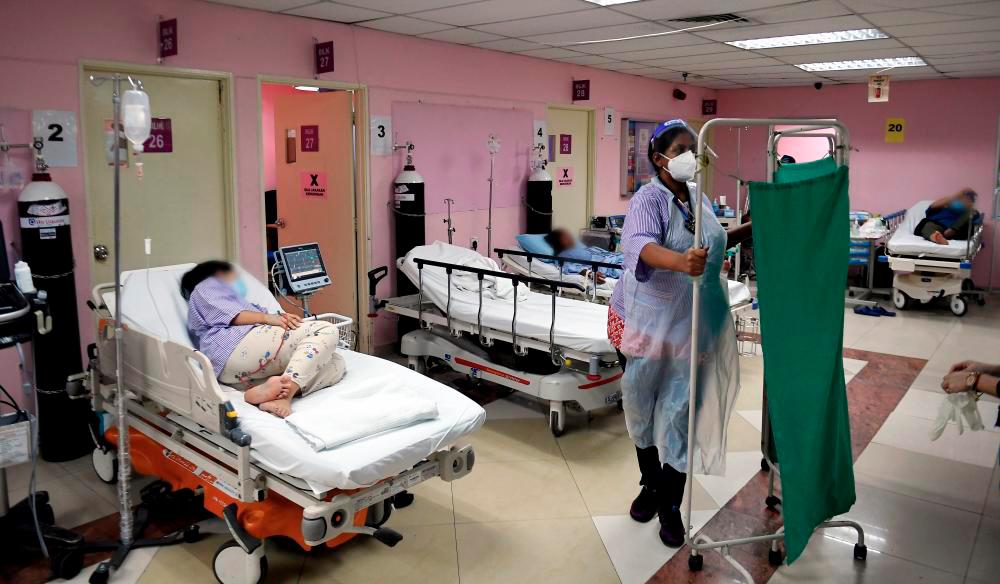PETALING JAYA: From August 1976 to August this year, there have only been 850 cadaveric (deceased) donors in the country, while January to August this year recorded only 51.
As of August, there were some 10,000 kidney failure patients are on the waiting list for a transplant.
“Sadly, due to the low number of organ donors in the country, most of them are forced to live out the rest of their lives undergoing dialysis three times a week,” said National Transplant Resource Centre (NTRC) deputy director Dr Hasdy Haron.
He said NTRC has been working to increase the number of transplantable organs to meet demand by promoting public awareness through multiple offline and online platforms.
“Among others, we are conducting campaigns, public education programmes and organ donation drives. We have also been using social media platforms and mainstream media to reach out to the public.”
Hasdy said NTRC has been targeting healthcare groups to focus on educating and training their doctors in managing a deceased’s body and organs with the greatest respect.
“When an individual dies in hospital, doctors and other relevant personnel need to know how to identify a potential organ donor and be familiar with the process of getting the deceased’s next of kin’s approval to donate his organs.”
He said the opt-out system for organ donors is an interesting legal approach to increasing the number of organ donors, but added that it may not necessarily reduce the shortage.
Under the opt-out system practised in some countries such as Singapore, all citizens are organ donors unless he or she chooses to opt out of the system.
“Some countries that practise the opt-out system still face organ shortage, while others that have implemented the opt-in system have a higher number of organ donors than Malaysia.
“So it is difficult to conclude which system is better.
“To implement the opt-out system here, we need to research the suitability of this approach in our community because many locals may not consent to having their organs removed from their bodies after death due to cultural and religious reasons.”
Lawyer Siva Ganish Sundrarajoo said from the legal aspect, consent from the next of kin is needed to continue with a cadaveric organ donation process.
“Section 2 (2) of the Human Tissue Act 1974 stipulates that the family’s consent has to be received before procuring organs from the body of their loved ones.
“This is even when the deceased registered as an organ donor before his death. Hence, the organs and tissues will only be retrieved after receiving the consent of the next of kin.
“However, even if you have not pledged your organs, you can still be a donor if your family consents when asked by doctors. But pledgers need to discuss or inform family members about their registration as a donor and their desire to donate their organs after death.”
A veteran journalist, who wished to be known only as Lee, said he pledged his organs and tissues for donation as he wants to help as many lives as possible.
“I believe we are spiritual beings having a human experience. As precious as life is on earth, it is only temporary but with purpose. We must help others in whatever way we can.”
Lee said his wife understands him very well and she whole-heartedly accepts the decision he has made.










